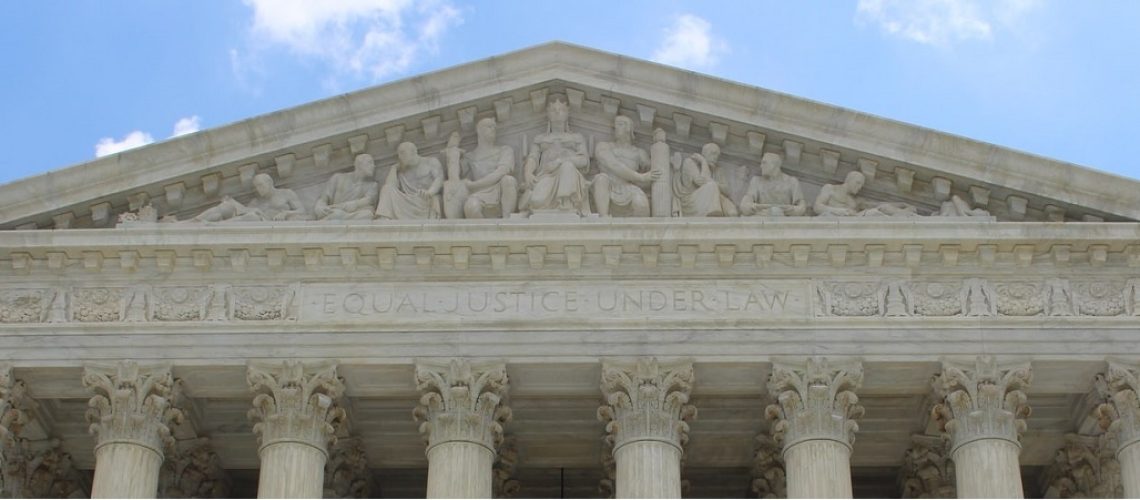When a judge or a court asks, “How do you plead?” you have a few optional responses. In addition to “guilty” and “not guilty,” you can plead nolo contendere. This Latin phrase means “no contest” or “I do not wish to contend.”
A nolo contendere plea means you are not contesting the charges against you. For example, if Georgia law enforcement charged you with a traffic violation and you pleaded no contest, you might have to pay the fine but might avoid points on your driving record.
Your plea is your legal responsibility to your charges. How you plead affects the outcome of your case. For example, if you plead guilty, you admit the charges against you are accurate and true. Therefore, a trial is unnecessary. The benefit of pleading guilty or enter a nolo contendere and avoiding a trial can include less severe sentencing.
Pleading Nolo Contendere
A nolo contendere plea is similar, yet different, to a guilty plea. When you have a guilty response, you confess to the charges and accept responsibility for the consequences. With a nolo contendere plea, you accept the consequences but do not confess to or deny the crime.
Defendants seldom admit to guilt without having a plea bargain first set up with the prosecution. By pleading guilty, you wave the right to a trial. This decision typically occurs in exchange for:
- A less severe punishment than what is standard.
- A conviction for a lesser offense.
Courts and prosecutions may accept nolo contendere as readily as a guilty plea since the conviction consequences are the same. It also saves the State of Georgia the expense of a trial.
One of the benefits of a no-contest plea – or not admitting to guilt – is the court or other judiciary system cannot use the conviction against you for related civil cases. You might face a charge by the local district attorney and a lawsuit for the same incident. Even if you plea nolo contendere with the local district attorney, it will not mean an admission of guilt for the civil actions.
For example, you might have received a driving under the influence (DUI) charge after crashing into someone’s property. The arresting officer gave you a breathalyzer that recorded you were over the limit. Even if you plea nolo contendere to the DUI because of the evidence against you, you can still deny the lawsuit from the property owner.
A no-contest plea may also help you get lighter sentencing. When you admit guilt, you avoid being subject to the harshest penalties from a jury-convicted trial.
Pleading No Contest to Wobblers
A wobbler is a charge that a judge may punish as a misdemeanor or a felony. In Georgia, a misdemeanor has a maximum penalty of up to 12 months in jail and up to $1,000 in fines. An aggravated misdemeanor, however, can have fines up to $5,000.
Wobblers in Georgia include the following:
- Driving under the influence (DUI)
- Theft
- Assault
- Fraud
- Some drug charges
- White-collar crimes
Felonies have incarceration punishments of longer than one year. Depending on the type or class of criminal charges, prison time could have a minimum sentence of one year, five years, 10 years, 20 years, or 25 years.
A felony conviction can also remove some of your rights, such as the right to vote or own firearms. You must also disclose felony convictions to prospective employers, which can hurt your ability to obtain a job. Likewise, criminal convictions on your record can decrease your chances of getting:
- A home, car, or school loan.
- An educational grant, scholarship, or work-study program.
- A federal loan or other government financial aid.
- Public housing or welfare benefits.
You cannot have a felony conviction expunged from your record. An expungement – or record restriction – hides your charges from the general public. If you can plead nolo contendere to a wobbler, the judge or prosecution might reduce your charge and punishment to a misdemeanor.
When You Can Plead Nolo Contendere

It is up to the judge whether he or she will accept a no-contest plea. The court considers the crime, the incidents surrounding the charge, and its effect on the general public.
The judge will also only accept the plea if there is sufficient evidence of being responsible for the crime. This stipulation prevents not guilty defendants from admitting guilt.
Even if you have the ability to plead no contest, it might not be in your best interest if you or your attorney believes your case is strong. Speak with your legal representative about your options and which plea is best for your case.
You also do not want to make a nolo contendere plea without some assurance of the outcome. A plea bargain with the prosecution can be beneficial. Plea bargains can include:
- Dropping one or more charges when you have multiple charges.
- Reducing the charge to a less serious offense.
- Recommending a lighter sentence.
Your lawyer can negotiate with the prosecution for the best possible outcome. It will be up to you to accept or reject the offer.
Alternative Options to Nolo Contendere Pleas
Your plea is your formal response to your charges. If you do not have the option to plea nolo contendere, your legal counsel can review what other pleas mean for your case.
When you plead guilty, you are fully admitting to the charges and waive your right to a trial. However, the court must approve the plea, as the state’s courts want to ensure your rights and that you understand the consequences.
When you plead not guilty, you are requesting a trial by jury. This is a common plea if you or your defense attorney thinks they can demonstrate reasonable doubt to the jury.
Likewise, you might be able to plead not guilty because of insanity. This plea means that you might have committed the crime but were not in your “right mind” when it occurred.
You can also refuse to enter a plea. Defendants might refuse or delay entering a plea until they hire legal counsel. However, the court will typically register this as a not guilty plea. If you refuse to enter a plea, you will still be subject to a trial and sentencing if convicted.
For legal advice, call our office at Arora Law today at (404) 609-4664 or contact us here to find out how we can help.










